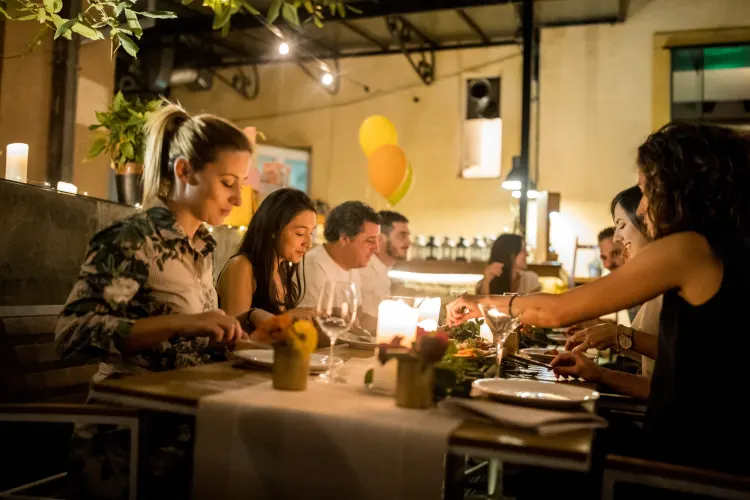For years, chain restaurants weren’t legally allowed to sing the “Happy Birthday” song due to copyright restrictions.
Yes, the simple act of serenading a birthday guest could have landed restaurants in hot water, legally and financially.
This legal web, deeply tied to copyright law, impacted even the most innocent of celebrations, leaving restaurant owners to rethink their birthday traditions.
Now, let’s dive into why this seemingly innocent song was so complicated for restaurants and how that changed in recent years.
Copyright History of the “Happy Birthday” Song
You might think of “Happy Birthday” as public property—a song that belongs to everyone. After all, it’s just a few lines sung all around the world. But until 2016, that wasn’t the case.
For decades, the song was protected by copyright, with Warner/Chappell Music holding the rights. This meant that if a business, like a chain restaurant, wanted to sing the song publicly, they technically needed to pay licensing fees.
The fees could vary, but for a business running multiple locations, the idea of paying for the right to sing a birthday song was more than just a financial burden—it was a headache that no one wanted to deal with.
The legalities were too tight to ignore.
(For more on the song’s background, check out our History of the Happy Birthday Song article.)
Why Chain Restaurants Avoided Singing “Happy Birthday”
Chain restaurants, known for following corporate protocols, were particularly cautious. Public performance rights applied to restaurants, and with a copyright hanging over “Happy Birthday,” they had every reason to steer clear.
What did this mean? Essentially, if you were in a restaurant and sang “Happy Birthday” to a customer without permission, you were violating copyright law.
The cost implications were clear: fines, legal battles, or forced settlements if Warner/Chappell Music came knocking.
So, instead of taking that risk, chain restaurants developed alternatives, hoping diners wouldn’t miss the original tune too much.
Moreover, the idea of being sued over a birthday celebration, no matter how unlikely, wasn’t something any big brand wanted to entertain.
For restaurants like TGI Fridays, Olive Garden, or Applebee’s, it was far easier to have employees sing a custom song than pay up or face potential lawsuits.
Alternative Birthday Songs
In response to this legal dilemma, restaurants got creative. You’ve likely noticed that servers in many chains still sing some version of a birthday song—but it’s not the one you grew up with. These songs, often unique to each chain, were composed to avoid copyright infringement.
Take TGI Fridays, for example. Their iconic clapping and energetic song became the norm for birthdays.
Or consider the chant at Texas Roadhouse, where servers belt out a fun, crowd-pleasing tune that’s nothing like “Happy Birthday” but gets the point across just the same.
These adaptations were a workaround that allowed restaurants to avoid the costly licensing fees while still acknowledging the birthday guest.
The Landmark 2016 Ruling
Everything changed in 2016. After years of legal battles, a U.S. court ruled that Warner/Chappell Music never actually had the rights to the lyrics of “Happy Birthday” in the first place. The ruling sent shockwaves across industries, especially in hospitality, where the song had been banned in chain restaurants for decades.
Suddenly, the song entered the public domain, and restaurants no longer had to worry about paying for the privilege of singing it. It was a relief for businesses and consumers alike. Now, anyone could sing “Happy Birthday” without the shadow of copyright law looming over them. The song finally belonged to the people.
Post-2016: What Changed for Restaurants?
After the ruling, chain restaurants embraced the ability to sing “Happy Birthday” once again, though some chose to stick with their alternative versions simply because they had become a part of the brand’s identity.
Still, the legal hurdle was gone. For any restaurant that wanted to return to the classic “Happy Birthday” song, it was now perfectly legal to do so, and customers welcomed the return of tradition.
The change didn’t happen overnight—some chains still rely on their custom jingles—but for many businesses, it marked a return to the simple joy of singing a universally recognized tune without fear of a lawsuit.
For more insight into the broader question of public performances, head over to our main article: Is It Illegal to Sing Happy Birthday in Public?


